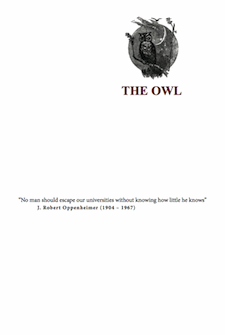Fair Trade Tea and Sustainable Development Among Indigenous Peoples of Amazonian Ecuador A Case Study
Keywords:
indigenous people, Latin America, economics, International AffairsAbstract
Guayusa is a traditional tea found in the Amazon region of Ecuador. For generations the indigenous Kichwa people have been drinking it ceremonially in the morning hours to energize their bodies and souls. Historically, this tea has had immense cultural significance, but our research aimed to assess what guayusa means to modern-day Kichwas. Runa, a newly formed company, works with local farmers to cultivate and sell guayusa in the United States and Canada. With both a non-profit and a for-profit side of the company, Runa hopes to increase local income and standard of living while making a profit. As our host community embarked on the beginning stages of involvement with this company, we were interested to see how Runa operated in terms of cultural sensitivity, and assessed the cultural and financial implications of this project within the community. We conducted interviews to understand where guayusa fits into the daily life of the Kichwa people today,
and how they feel about the Runa initiative. Ultimately we found that within this community,involvement with Runa is mutually beneficial. Indigenous farmers see it as one of a variety of economic initiatives that bring in money in an ecofriendly and culturally acceptable way.
Downloads
Published
Issue
Section
License
All works published in The Owl are published under a Creative Commons Attribution, Non-Commercial, Share-Alike (CC-BY-NC-SA) license. The author retains copyright.

